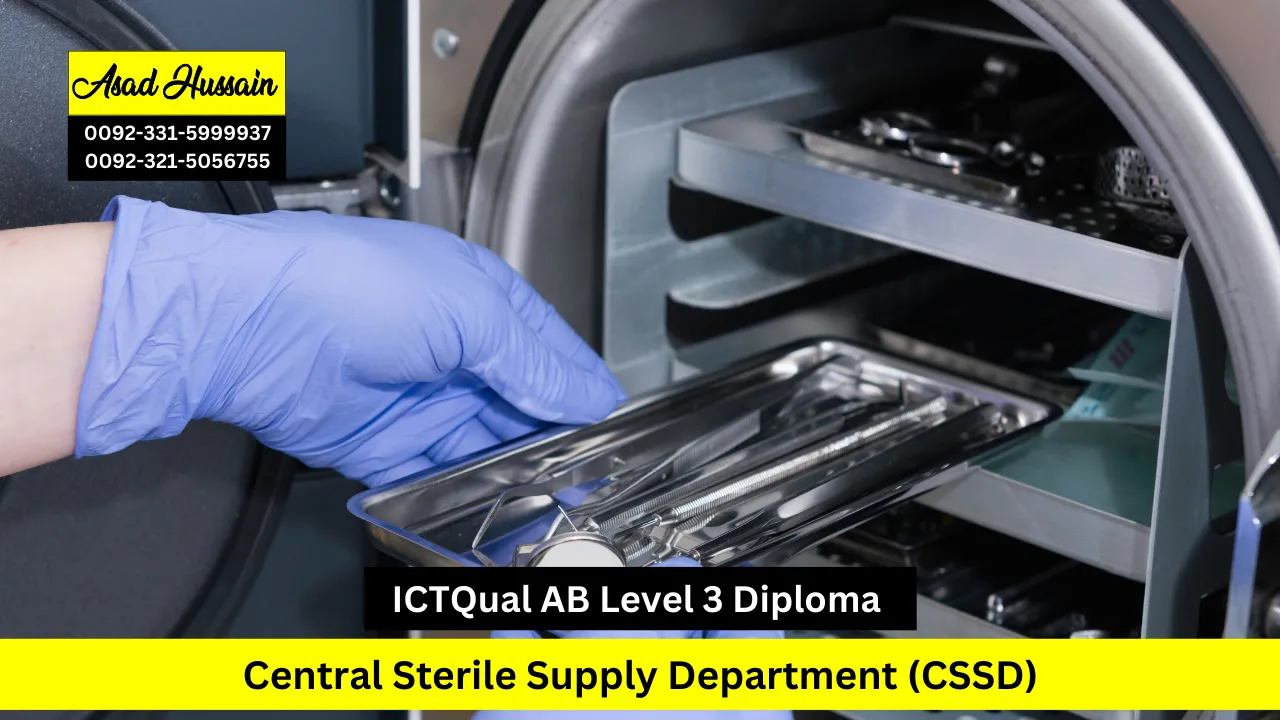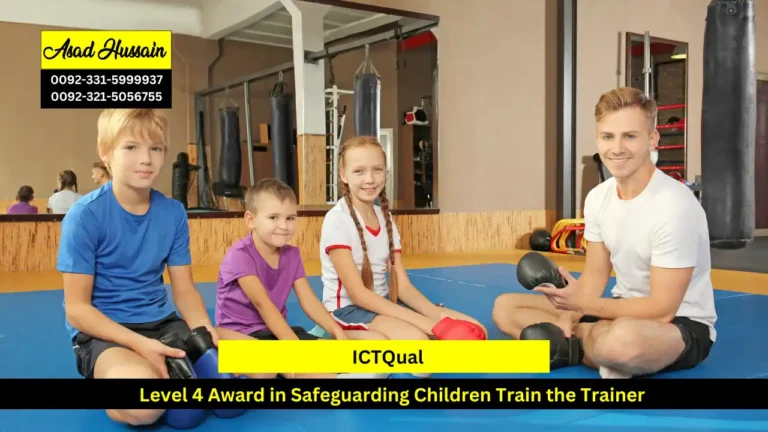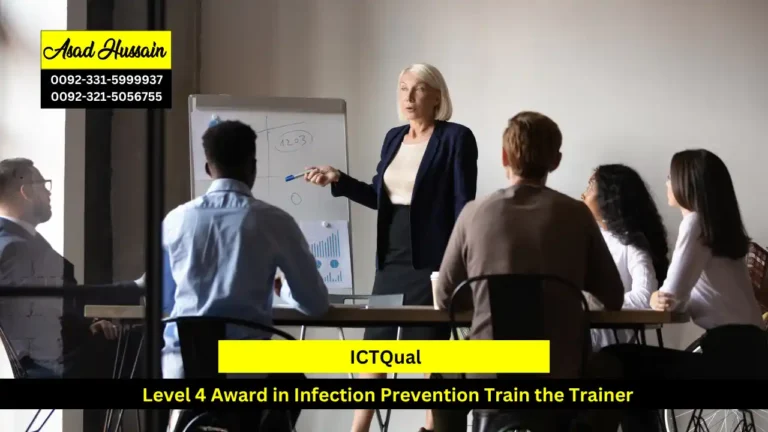Effective sterilization and infection control are critical in healthcare settings to ensure patient safety and prevent the spread of infections. The ICTQual AB Level 3 Diploma in Central Sterile Supply Department (CSSD) is a specialized program designed for healthcare professionals aiming to develop advanced knowledge and practical skills in the sterilization, decontamination, and handling of medical instruments and devices. This course provides a comprehensive understanding of CSSD operations, infection prevention protocols, and quality control measures essential for maintaining high standards of patient care.
The ICTQual AB Level 3 Diploma in Central Sterile Supply Department (CSSD) covers a wide range of topics, including instrument decontamination, sterilization techniques, quality assurance, CSSD management, infection control, and regulatory compliance. Learners will gain both theoretical knowledge and practical experience, enabling them to work confidently in CSSD environments, manage sterilization processes efficiently, and ensure adherence to hospital protocols and international healthcare standards.
Through practical workshops, hands-on training, and case studies, participants will develop essential skills such as safe handling of instruments, identification of contamination risks, effective sterilization methods, and management of CSSD operations. The ICTQual AB Level 3 Diploma in Central Sterile Supply Department (CSSD) also emphasizes understanding relevant healthcare regulations, policies, and best practices to ensure compliance and maintain a safe, sterile environment.
Graduates of the ICTQual AB Level 3 Diploma in CSSD will be well-prepared for roles such as CSSD Technician, Sterile Services Practitioner, or CSSD Supervisor, capable of contributing to high-quality healthcare delivery. By combining technical expertise with practical application, this diploma empowers learners to enhance patient safety, support healthcare teams, and advance their careers in central sterile services.
Program Highlights
Study Units
- Introduction to Central Sterile Supply Services
- Microbiology and Infection Control
- Cleaning and Decontamination of Medical Instruments
- Inspection, Assembly, and Packaging of Medical Devices
- Sterilization Techniques and Processes
- Storage, Transport, and Distribution of Sterile Supplies Auditing
Age Requirements
- Applicants should be at least 18 years old to enroll in the program.
- Mature learners with relevant healthcare experience are encouraged to apply.
Educational Requirements
- A minimum of a high school diploma or equivalent qualification is required.
- Candidates with prior healthcare training, certifications, or coursework may also be considered.
Professional Experience
- Some experience working in healthcare, hospital, or clinical environments is preferred.
- Applicants should demonstrate familiarity with basic healthcare procedures, hygiene, or patient care practices.
English Language Proficiency
- Non-native English speakers must provide proof of English proficiency, such as IELTS (minimum 5.5) or equivalent.
- Evidence of prior education or professional experience in English-medium environments may also be accepted.
The ICTQual AB Level 3 Diploma in Central Sterile Supply Department (CSSD) is designed to equip learners with the technical knowledge, practical skills, and professional competence required to operate efficiently within a CSSD environment. Graduates will gain the ability to manage sterilization processes, ensure infection control, and maintain high standards of healthcare safety, preparing them for roles in hospitals, clinics, and healthcare facilities.
Introduction to Central Sterile Supply Services
- Understand the role and functions of CSSD within healthcare settings.
- Identify the responsibilities of CSSD staff and the workflow within sterile supply operations.
- Comprehend organizational structures and standards relevant to CSSD operations.
- Apply knowledge of CSSD principles to support safe and efficient sterilization processes.
- Recognize the importance of CSSD in patient safety and infection prevention.
Microbiology and Infection Control
- Understand basic microbiology concepts relevant to sterilization and infection control.
- Identify pathogens, their modes of transmission, and risks associated with contaminated instruments.
- Apply infection control principles to reduce contamination and prevent healthcare-associated infections.
- Implement standard precautions and personal protective equipment (PPE) protocols.
- Monitor and evaluate infection control measures within the CSSD environment.
Cleaning and Decontamination of Medical Instruments
- Demonstrate techniques for proper cleaning, decontamination, and preparation of medical instruments.
- Understand the principles and procedures for effective removal of contaminants.
- Apply manufacturer guidelines and standard operating procedures for instrument care.
- Assess the effectiveness of cleaning methods through inspection and quality checks.
- Ensure safe handling of hazardous substances and contaminated equipment.
Inspection, Assembly, and Packaging of Medical Devices
- Inspect instruments and devices for cleanliness, functionality, and damage.
- Assemble surgical trays and kits according to standardized procedures.
- Apply appropriate packaging techniques to maintain sterility.
- Record and report defects or irregularities in instruments.
- Ensure compliance with organizational protocols and safety standards.
Sterilization Techniques and Processes
- Understand the principles of sterilization and the various sterilization methods used in CSSD.
- Operate and monitor autoclaves, chemical sterilizers, and other sterilization equipment safely.
- Validate and document sterilization cycles in compliance with healthcare standards.
- Identify potential risks or failures in sterilization processes and implement corrective actions.
- Ensure that sterilized instruments meet regulatory and quality assurance requirements.
Storage, Transport, and Distribution of Sterile Supplies
- Apply best practices for the storage of sterile instruments to prevent contamination.
- Implement safe transport and handling procedures within healthcare facilities.
- Manage inventory and maintain accurate records of sterile supplies.
- Coordinate distribution to clinical departments efficiently while ensuring sterility.
- Evaluate and improve logistics processes to support continuous quality improvement.
Auditing and Quality Assurance
- Conduct audits to monitor compliance with CSSD protocols and standards.
- Identify areas for improvement in sterilization, decontamination, and workflow processes.
- Develop action plans to address non-compliance and enhance operational efficiency.
- Maintain accurate documentation for quality assurance and regulatory inspections.
- Apply continuous improvement principles to uphold high standards of patient safety and infection control.
Conclusion
Upon completing the ICTQual AB Level 3 Diploma in CSSD, learners will possess the technical expertise, practical skills, and professional knowledge required to operate effectively in central sterile services. Graduates will be prepared for roles such as CSSD Technician, Sterile Services Practitioner, or CSSD Supervisor, capable of ensuring safe, efficient, and compliant sterilization processes that support high-quality patient care.
The ICTQual AB Level 3 Diploma in Central Sterile Supply Department (CSSD) is designed for individuals aiming to develop professional expertise in sterilization, infection control, and medical instrument management. This program is ideal for learners seeking to work in hospital CSSD units, healthcare facilities, or clinical environments where high standards of hygiene, safety, and quality are essential.
Educational Instructors and Trainers
- Healthcare educators and trainers who wish to update their knowledge of CSSD operations and sterilization techniques.
- Professionals aiming to deliver training programs on infection control, sterilization, and safe instrument handling.
Environmental Advocates and Activists
- Individuals involved in healthcare hygiene campaigns or public health initiatives seeking knowledge in infection prevention and medical sterilization.
- Advocates aiming to support sustainable and safe practices in medical instrument management.
Students and Recent Graduates
- Graduates or students in healthcare, nursing, or biomedical programs seeking specialized training in CSSD operations.
- Learners looking to gain practical, career-focused skills that enhance employability in hospitals or clinical settings.
Career Changers
- Professionals from other fields wishing to transition into healthcare sterilization, infection control, or CSSD roles.
- Individuals seeking a recognized Level 3 qualification to start a career in central sterile services.
Policy Makers and Regulators
- Healthcare administrators, regulators, or quality control officers looking to understand CSSD standards and compliance requirements.
- Professionals responsible for implementing or monitoring sterilization protocols, infection control policies, and patient safety measures.
Conclusion
This program is ideal for learners committed to advancing their careers in CSSD and healthcare sterilization services. Graduates will acquire the technical skills, infection control knowledge, and operational competence required to work confidently in CSSD roles, contributing to patient safety, organizational efficiency, and high standards of healthcare practice.







